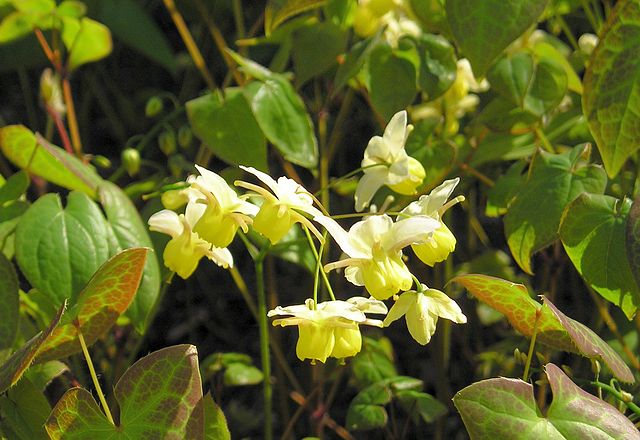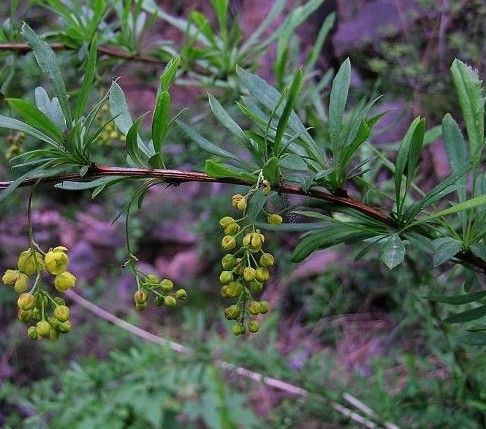- Liliaceae
- Lamiaceae
- Euphorbiaceae
- Leguminosae
- Zingiberaceae
- Chloranthaceae
- Campanulaceae
- Asteraceae
- Acanthaceae
- Orchidaceae
- Polygonaceae
- Ranunculaceae
- Vitaceae
- Rubiaceae
- Solanaceae
- Thymelaeaceae
- Saururaceae
- Moraceae
- Polypodiaceae
- Myrtaceae
- Araceae
- Adiantaceae
- Schisandraceae
- Amaranthaceae
- Berberidaceae
- Araliaceae
- Taxaceae
- Cucurbitaceae
- Apiaceae
- Guttiferae
- Scrophulariaceae
- Papilionaceae
- Caprifoliaceae
- Elaeagnaceae
- Apocynaceae
- Brassicaceae
- Papaveraceae
- Gentianaceae
- Paeoniaceae
- Lauraceae
- Punicaceae
- Nyssaceae
- Ephedraceae
- Gnetaceae
- Polygalaceae
- Violaceae
- Ginkgoaceae
- Cupressaceae
- Dipsacaceae
- Eucommiaceae
- Juglandaceae
- Dryopteridaceae
- Rosaceae
- Huperziaceae
- Caryophyllaceae
- Rhamnaceae

Epimedium brevicornu Maxim.
- Introduction
- Download
Blast
Epimedium brevicornum Maxim from many species of the genus Epimedium(Berberidaceae), a commonly used Chinese medicine, has proven to have efficacy against cardiovascular diseases and much chronic illness, such as infertility, impotence and senile functional diseases, for over 2000 years. Flavonoids are the major and active constituents of the genus. They are effective on dilation of the coronary, decreasing blood pressure and blood fat, inhibition of the platelet aggregation, delaying formation of thrombi, improving humoral and cellular immunity, increasing synthesis of DNA and anti-aging. They can also be used to treat rheumatism, chronic tracheitis, infantile paralysis and neurasthenic in some clinical practices.
Year:2010
Institution:South China Botanical Garden, Chinese Academy of Sciences
Yunnan Agricultural University
Material: Wuhan, China
Data link: http://www.herbal-genome.cn/index.php?m=content&c=index&a=show&catid=100&id=75
Mahonia fortunei (Lindl.)Fedde
- Introduction
- Download
Blast
Mahonia fortunei (Lindl.)Fedde belongs to Berberidaceae family,is widely cultivated in China and in other places, such as Indonesia, Japan, and United States. It is grown in gardens as an ornamental plant, owing to multicolored leaves and yellow flowers,and has been widely used in traditional Chinese medicine for treatment of many diseases, such as heat-clearing, detoxifying, antiphlogistic and anticancer.The major bioactive components of this herb is berberine.
Year:2016
Institution:South China Botanical Garden, Chinese Academy of Sciences
Yunnan Agricultural University
Material: Wuhan, China
Data link: http://www.herbal-genome.cn/index.php?m=content&c=index&a=show&catid=100&id=74

Berberis poiretii Schneid
- Introduction
- Download
Blast
Berberis poiretii Schneid, effectively used in Traditional Chinese Medicine for heat clearing, damp drying, and so on.
Year:2016
Institution:South China Botanical Garden, Chinese Academy of Sciences
Yunnan Agricultural University
Material: Guangzhou, China
Data link: http://www.herbal-genome.cn/index.php?m=content&c=index&a=show&catid=100&id=73